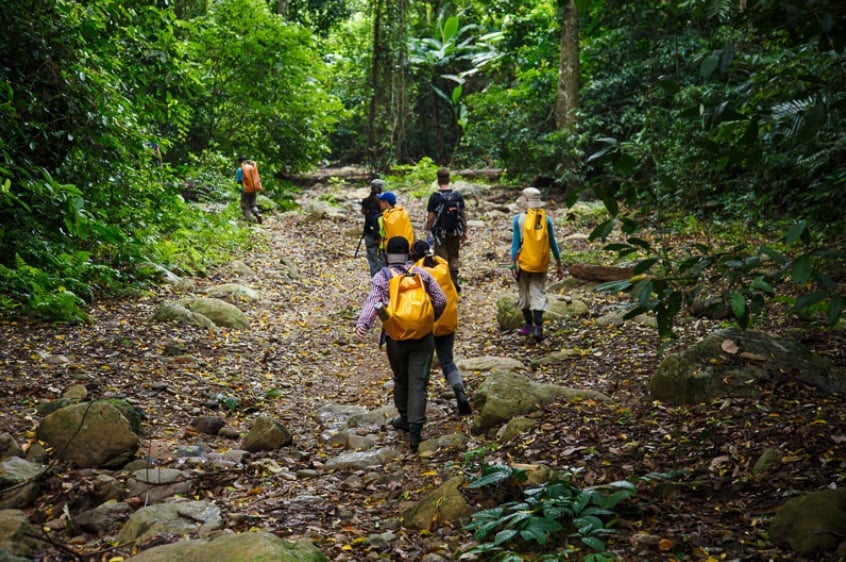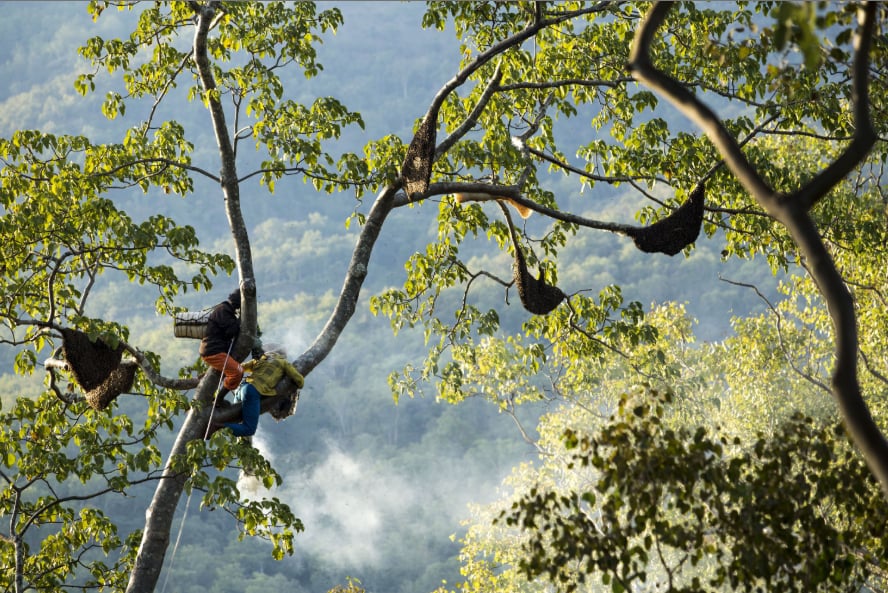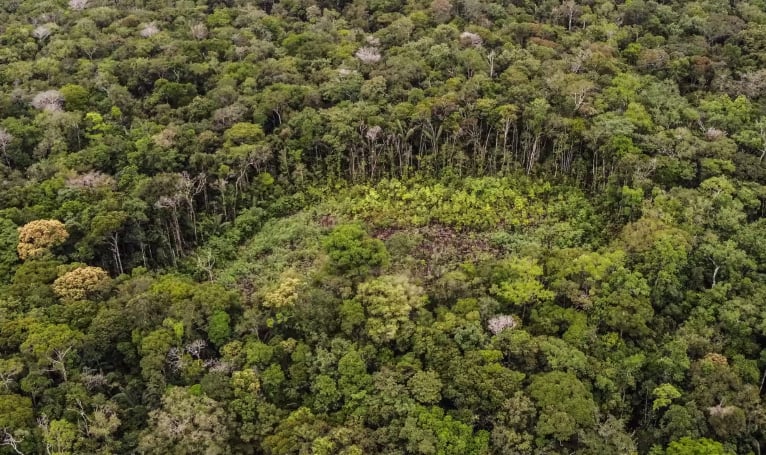December 17, 2025 | 06:24 GMT +7
December 17, 2025 | 06:24 GMT +7
Hotline: 0913.378.918
December 17, 2025 | 06:24 GMT +7
Hotline: 0913.378.918
Amid the wave of climate change, forests are not only the green lungs of the planet or shields for biodiversity, they also hold immense economic potential when placed in the right hands.
As traditional industrial logging models increasingly reveal their environmental shortcomings, community forestry, where real ownership and rights are given to local people living near forests, is emerging as a sustainable path forward. It protects forests, generates livelihoods, and even creates wealth from the forest.
In reality, across many parts of the world, communities that once relied on slash-and-burn agriculture, firewood collection, and subsistence from the forest have now transformed into true "forest entrepreneurs."
According to the World Resources Institute (2021), in Mexico, more than 2,000 forest-owning communities (known as ejidos) not only protect forests but also operate sawmills, factories, and ecotourism centers. Notably, the community of Ixtlán de Juárez (in Oaxaca State) earns USD 4 - 5 million annually, creates jobs for over 300 people, and maintains a near-zero deforestation rate. This model is considered one of the most successful examples of community forestry in the world.
Beyond Mexico, Nepal showcases similar success. Over 22,000 community forest user groups (CFUGs) currently manage 2.2 million hectares of forest, nearly one-fourth of the country’s total forest area. According to Nepal's Ministry of Forests, forest cover has significantly increased from 26% in 1992 to over 45% by 2021. These forests generate stable incomes from firewood, bamboo, honey, and forest-linked ecotourism, leading to marked improvements in local livelihoods.

Vietnam has a significant advantage in forest resources, making it essential to scale up this model to both protect natural assets and create sustainable livelihoods for upland communities. Photo: Illustration.
In Indonesia, the "village forest" (Hutan Desa) model has been widely implemented across many provinces. Under this scheme, household groups are granted 35-year forest use rights, allowing them to legally harvest non-timber forest products, organize ecotourism activities, and access climate funds. As a result, many villages have generated hundreds of thousands of USD in annual revenue, while maintaining forest cover, increasing incomes, and improving overall living standards.
In Vietnam, the effectiveness of community forestry is becoming increasingly evident. According to the Vietnam Administration of Forestry (2023), nearly 4 million hectares of forest nationwide are managed by household groups or communities. The country’s forest cover has surpassed 42%, and tens of thousands of ethnic minority households rely on, and coexist with the forest.
Many localities are leveraging this model to both boost their economies and protect forest ecosystems. In Quang Tri, community groups actively safeguard the forest, plant FSC-certified acacia, and produce handcrafted items from bamboo and rattan for export.
In A Luoi (Hue city), the Co Tu people not only patrol the forest but also explore new value streams through ecotourism, native tree planting for high-value timber, and medicinal herbs.
In the Northwest region, several communes are collaborating on selective logging based on technical guidelines, while also developing livelihoods beneath the forest canopy such as cultivating amomum, wood ear mushrooms, and beekeeping for honey production.

Harvesting wild honey under the forest canopy. Photo: CIFOR-ICRAF.
The policy on Payments for Forest Environmental Services (PES), the issuance of FSC forest certification, along with various livelihood support programs in forest areas, has significantly accelerated this process. According to the Ministry of Agriculture and Rural Development (now the Ministry of Agriculture and Environment), in 2023, total payments for forest environmental services reached over VND 3,000 billion, helping to improve the incomes of hundreds of thousands of households in Vietnam’s upland regions.
Beyond economic outcomes, these models also carry profound social implications. When local people truly gain ownership of the forest, their motivation to protect it becomes stronger than ever; local employment becomes more stable, illegal deforestation rates drop significantly, and indigenous culture is preserved and promoted.
Moreover, in the context of the global drive toward carbon neutrality, forests that absorb CO₂ are increasingly seen as valuable "economic assets." According to the World Bank, many major corporations, such as Nestlé and Microsoft, have purchased carbon credits from community-managed forests in Africa and Latin America to achieve their net-zero emissions targets.

Community forests not only generate sustainable income, but also help preserve cultural heritage, reduce deforestation, and unlock financial opportunities through carbon credits. Photo: Juan Pablo Pino.
In Vietnam, a preliminary legal framework for the voluntary carbon market has begun to take shape, creating favorable conditions for forest-managing communities with certification and carbon monitoring capabilities to access new sources of financing and actively harness the economic value of the natural resources they protect.
This can be considered a golden opportunity for community forestry to evolve beyond a social solution and truly become a sustainable wealth-generation model based on natural assets. As emphasized at the World Forestry Congress in Seoul in 2022: "When people truly own the forest, they not only protect it better. They also help it become a foundation for prosperity."
If properly developed, community forestry will not only help protect forest resources but also build sustainable livelihoods, paving the way for green and sustainable development for millions of people in the highlands of Vietnam.
Translated by Kieu Chi

(VAN) UNICEF and IOM receive this aid and provide essential services to assist families affected by recent storms and floods.

(VAN) Circular economy is regarded as a suitable pathway for Viet Nam’s fisheries sector, helping to improve production efficiency, optimize resources, and reduce environmental pressure.

(VAN) Vietnam and the UK are promoting cooperation in agriculture, environment, renewable energy, and green transition, with the goal of achieving Net Zero.

(VAN) Switzerland highly values carbon credit cooperation potential with Viet Nam and hopes to begin negotiations under Article 6 of the Paris Agreement.

(VAN) Northwestern women not only preserve traditional weaving but also leverage their cultural identity to create livelihoods, while spreading it to tourists through authentic experiences.

(VAN) Based on research results and production practices, the international scientific community evaluates UNI 126 as one of the world's best Panama disease-resistant banana varieties.

(VAN) More than 10,000 hectares of Cavendish bananas (Philippines), once abandoned due to the Panama Fusarium wilt Tropical Race 4 (TR4) disease, have now been brought back into production by switching to the Formosana variety.